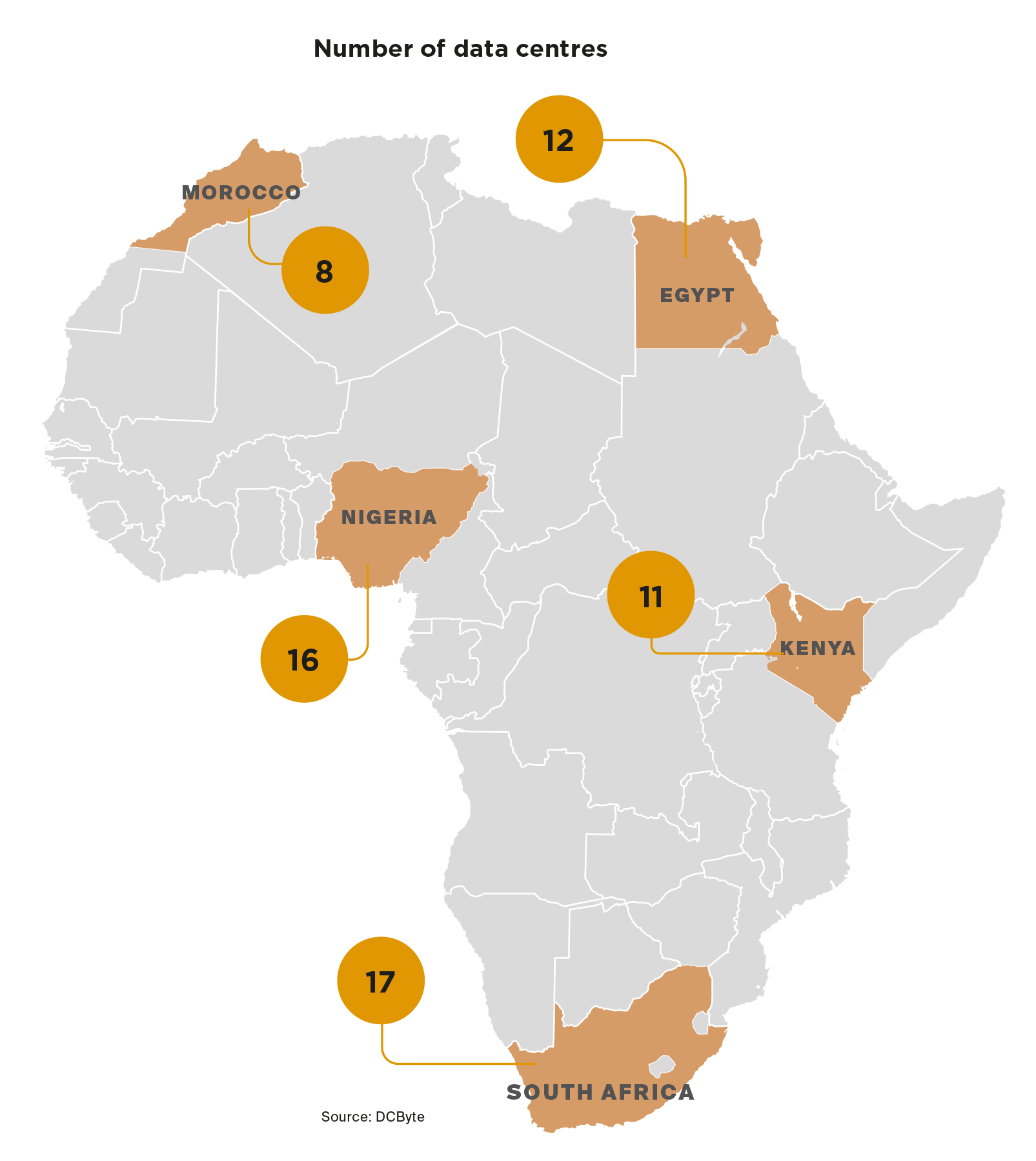The digital race to connect Africa
As a part of the reaction to the disruption caused by the pandemic, more businesses have taken their operations online and internet access has become more essential than ever for business continuity.
1 minute to read
This reaction is continuing to stimulate demand for data centre development in Africa, with supply growing across the continent.
According to DCByte, the major data centre additions in 2021 were in Johannesburg, Lagos and Nairobi. These locations, together with Cairo and Casablanca, are regarded as being the top five key data centre markets in Africa. DCByte classifies these countries as key hub locations in Africa, mainly because of their economic potential.

Like other parts of the world, data centres are gaining traction as an alternative (and attractive) development asset in Africa amongst developers and investors. This is evidenced by the continent-wide live capacity of 174MW and a further planned 105MW (DCByte). Among the planned projects are expansions of sites in Kenya, South Africa and Nigeria by Africa Data Centres, which plans to develop a further 10 data centres across Africa.
"Away from the retail sector, the industrial sector showed some promise with increased industrial activity and the growth of industrial parks in different parts of the country."
Overall, South Africa appears to have secured pole position as the continent’s data centre capital. Indeed the republic will soon house Africa’s largest data centre, which is being developed in phases by Vantage Data Centres. The first 16MW phase is expected to come online later this year.
Looking ahead, we expect to see an intensification in data centre demand as the need for connectivity by the public sector, professionals in the fintech and health care space spur demand across the continent. Indeed, the financial and business services, as well as the transport, storage, information & communication services sectors are forecast to add almost 11 million new jobs around Africa by the end of the decade (Oxford Economics).